

If you run a retail business, it is a good opportunity to partner yourself with an exclusive property such as department stores or malls. There is more foot traffic and a wide array of customers, overall, it’s a good avenue to raise your profit. But of course, there are also other places to open up your business such as airports, or major train stations. Opening a concession with a department store or any lucrative business property is often attractive to brand owners. And a retail concession agreement either in-store or online can offer a cheaper alternative to a mono-brand store. A concession gives businesses a fair opportunity to market their goods in an established environment with similar products. To know more about this, let us discuss this further below. And we have a list of comprehensive retail concession agreement samples that are downloadable for free if you need any help preparing this document.
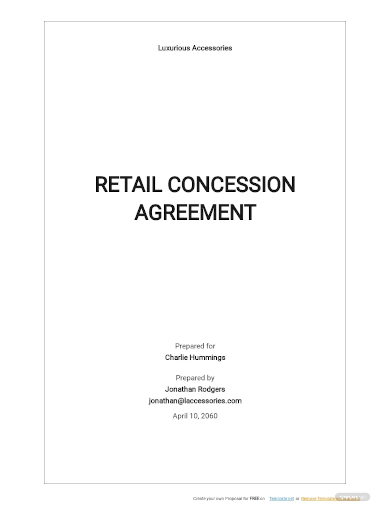
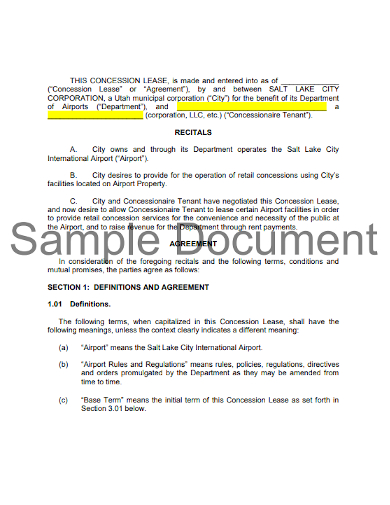
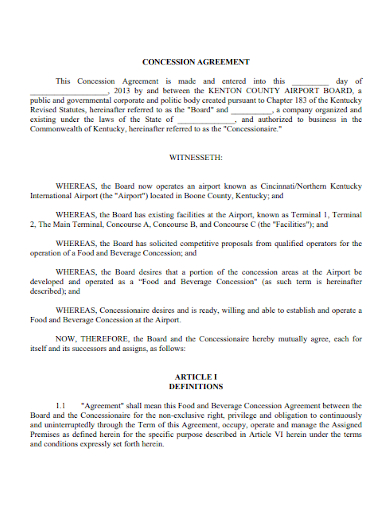
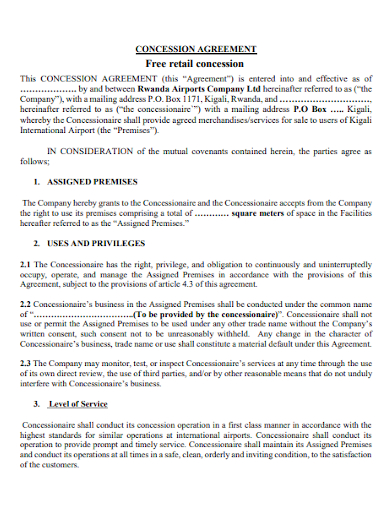
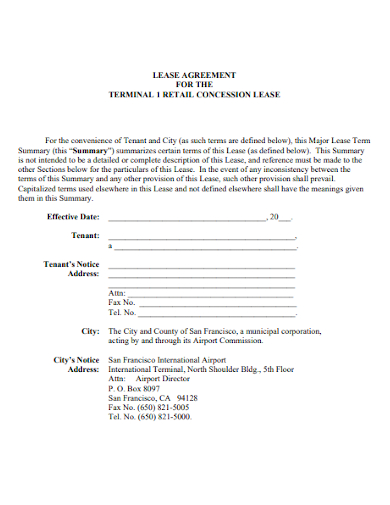
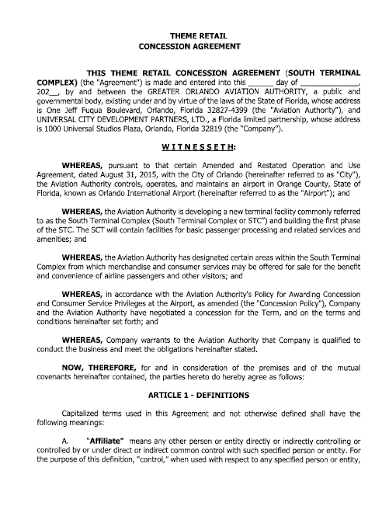
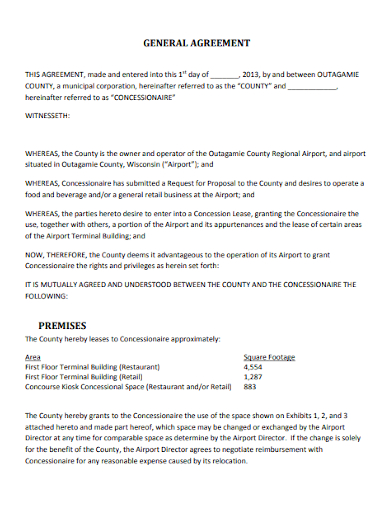
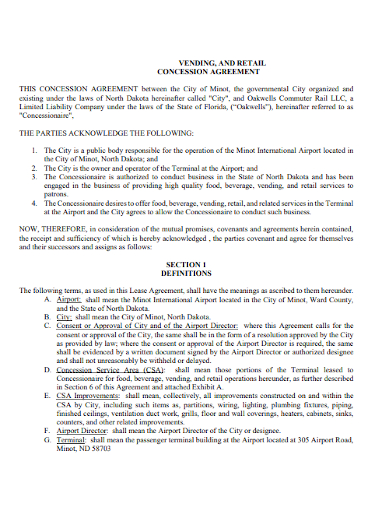
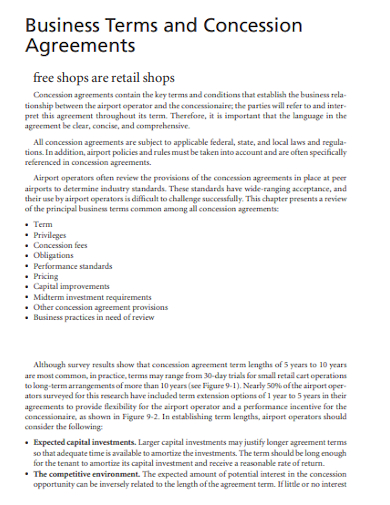
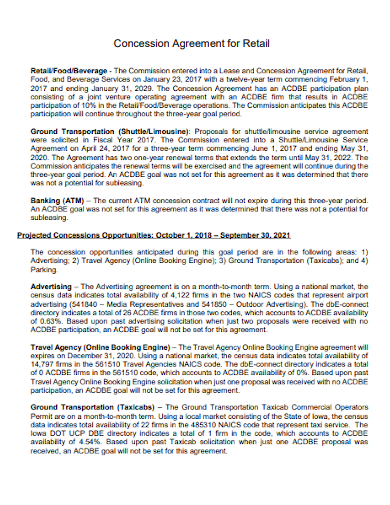
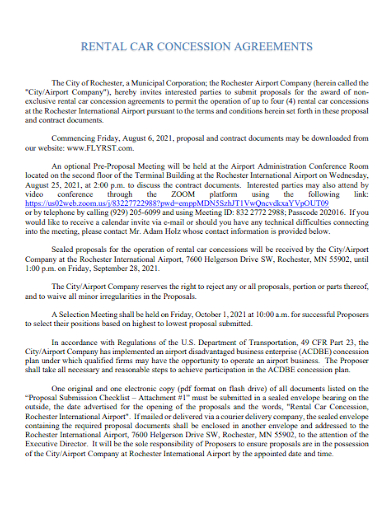
Retail concessions are commonly found in public areas like department stores or major airports. These are businesses or stores that operate within another business premises. In retail concessions, the brand operates like a tenant in which they rent a specific space and the owner of the property, for example, the department store a percentage of their sales for the floor space. But remember if you wish to open your business in department stores, you need to invest in the location and personnel. Once you have decided then you will need to enter into a retail concession agreement with the property owner. This will set the terms between both parties on how to go about with the concession in regards to location, fees, sales, and other important details.
Although competition is high being a retail concessionaire, this will give your company the proper exposure you need most especially when you’ve got a lot of shoppers browsing around the store. So, for a number of retailers, it is a good place to sell their products. Also, buying or renting property can be expensive. With a concession agreement, the property costs are built into the overall financial deal at the outset.
There is no obligation for a store to give you a written retail concession agreement but it is quite advisable to ask for one since you will need a solid reference in case disputes are to arise in the future. Generally, each department store or whichever property you choose operates on its own standard terms contained in its standard concession agreement. That being said, to create a retail concession agreement, you will need to include the following basic details below:
The names and addresses of both parties must be included in the agreement. In this case the retailer and the business property (e.g department store) details.
Describe in complete detail the products or items to be sold, and how many are allowed per item.
Most stores have fixed-term concession agreements which can only be terminated on six months’ written notice.
State the concession location and its accessibility.
State who will provide the staffing needs, and in this case the staff will usually have employment contracts with the concession holder and not the store. Such contracts should provide that the staff will comply with the policies and procedures of the store.
It should be specified in the agreement the types of services the store management will be offering in terms of security, electrical facilities, cleaning and etc. Specify the cost relevant to the services offered by the management when it comes to utilities.
And the concessionaire’s own staff will need to also be briefed on their accessibility around the store premises.
The agreement may stipulate that a particular house style must be adhered to in relation to advertising materials and you may be required to contribute to relevant advertising produced by the store with or without your approval. Further, the store may place restrictions on you promoting your other retail channels from within the store.
Depending on the initial agreement some store properties seek out commission from the sales rather than from a monthly rental. The store will take a percentage of the retail sales value of all merchandise sold by you. The amount required under the concession agreement varies for every store.
Other important details you should not miss out on in the agreement are the termination policy in case there is a need to end the agreement, data protection, privacy considerations, and insurance.
This will depend on the store’s policy, and in some stores, you cannot open or operate a concession or a shop with a certain distance from the store during the agreement. And there may be implications regarding retail or competition laws.
A good example of these are those concession stands you see in the malls such as cosmetics, fine jewelry and etc.
Yes, considering you don’t have to shell out a large amount of capital for leasing large space properties. And it is a relatively low-risk way to introduce your products into the market. If the launch fails, then the exit costs are much lower than if you have to sell a property.
Make sure you have a proper retail concession agreement on-hand once you decide to partner up with a department store of your choice. Download our free templates above to make it easier for you to prepare!